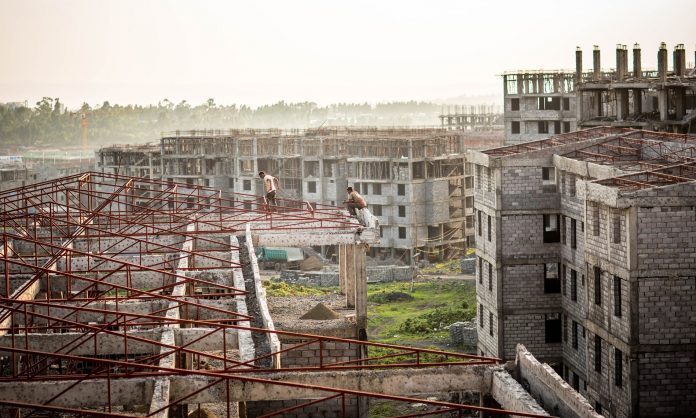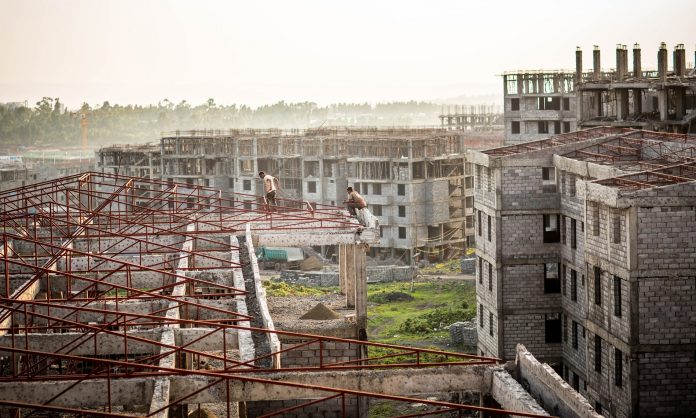
Wrapped in a white shawl and sporting a wide-brimmed cowboy hat, Haile stares out at his cattle as they graze in a rocky patch of grass. “My family and I have been here since I was a child,” he says, nodding at the small, rickety houses to his right. “But we will have to leave soon.” In the distance loom hulking grey towers, casting long shadows over his pasture. This is Koye Feche, a vast construction site on the edge of Addis Ababa that may soon be sub-Saharan Africa’s largest housing project.

Koye is the latest in a handful of miniature cities that are gobbling up land all around the Ethiopian capital. Since launching the integrated housing and development plan (IHDP) in 2006, the Ethiopian government has built condominium estates like these at a pace unrivalled anywhere in Africa. To date, more more than 250,000 subsidised flats have been transferred to their new owner-occupiers in Addis Ababa and smaller towns. Situated 25km south-east of the city centre and covering over 700 hectares of land, Koye will house more than 200,000 people in row upon row of muscular concrete high-rises.
Modelled on the modernist housing estates found across the postwar west, in particular east Germany, Addis Ababa’s condominiums symbolise the vaulting ambition of the Ethiopian government in its efforts to manage the country’s relentless urban growth. But whether they will ever solve its housing problems is uncertain. The population of the capital alone is expected to double to more than 8 million over the next decade. The number of houses needed to meet supply is estimated to be as many as half a million, but nearly a million people languish on the waiting list for a condominium. Nationwide, the urbanisation rate is estimated to be somewhere from 4-6% per year.
Source: The Guardian
































